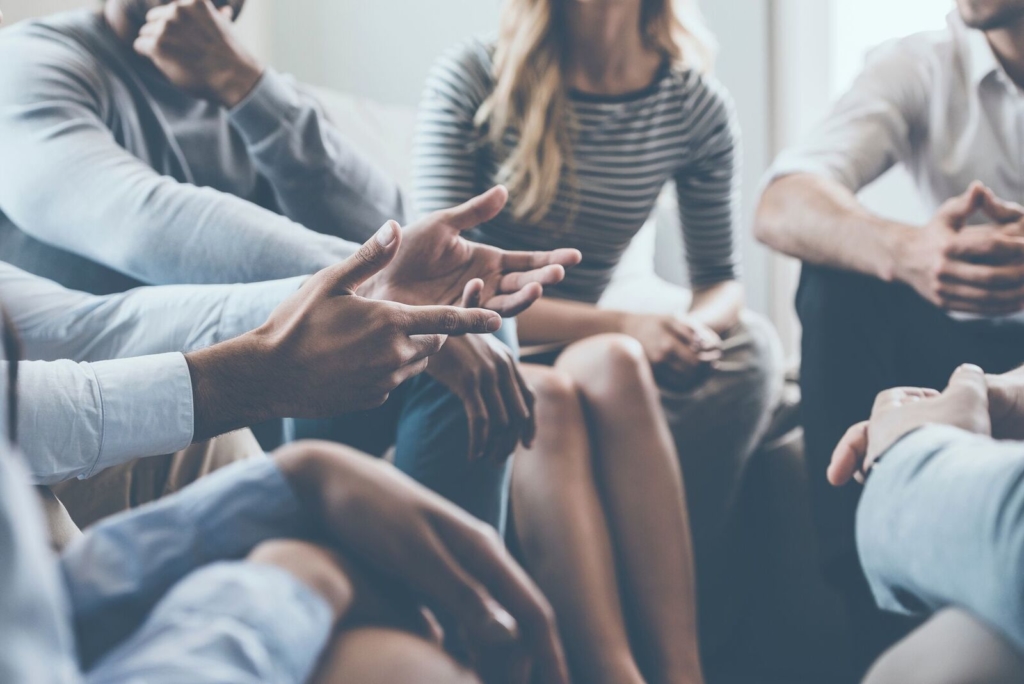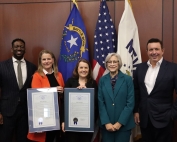Friends and Family Support
 Talking About Your Condition With Your Loved Ones
Talking About Your Condition With Your Loved Ones
When you’re first diagnosed with chronic kidney disease (CKD), you may want to talk about it with your friends and loved ones. Whomever you choose, the decision is yours and yours alone. At first, the conversations may be a bit hard to get through. Eventually, as you figure out what you want to say, things will get easier.
There’s no standard way to talk about your CKD. The best approach is to simply be honest and direct. However, be aware that your loved ones may have feelings of sadness or fear just like you may have had.
What’s important to remember is that you have people to rely upon to be a source of comfort and give you peace of mind. So reach out for the support you need.
Include Family and Friends in Your Care
When you’re feeling low and needing emotional support, give friends and loved ones a chance to cheer you up — or simply listen to you.
Your need for physical help may range from simple tasks, like moving a heavy object, to more involved jobs, like grocery shopping.
Remember, your loved ones care about you and want to help. All you have to do is ask—you might even feel better after doing so.
You’re less likely to miss medical appointments if you ask for a ride when you need it. You might eat healthier if someone helps with the cooking or menu planning. And it may be easier to remember to take your medications with someone to remind you.
One of the areas that family can help with most is meals. For example, if your family wants to eat a high-sodium food like ham, tell them you can eat just a small portion (if your weight or sodium levels are at an acceptable level). Or, you may just choose to eat something different from the rest of your family. Letting them know what you can and can’t eat may make mealtime easier for everyone.
Loved ones may be able to help you with transportation to dialysis and doctor appointments, assist with household chores, or just be there as a shoulder to lean on during rough patches. Just be sure to let them know that you need their help.
Keeping the Family Meal
Having a limited diet can make you feel different and isolated from your family. You might even feel like your diet is a burden to your family. Often, you may end up having a different meal than everyone else. This might work on occasion, but you don’t have to make a habit of giving up meals with your family.
In fact, sharing meals can be a good way to come together, especially if life has changed things for you and your family. You can even cook your meals together. It can be fun for everyone.
Keep in mind that having meals together as a family is less about eating and more about spending time with one another.
While you might draw comfort from family meals, kids get even more out of them. Research has shown that kids in families that spend quality time together, such as mealtime, have healthier eating habits.
Treatment Team Support
 In addition to friends and family, your health care team offers another level of support. Your doctors, nurses, and renal dietitian can talk to you about your progress, so make the most of the time you spend with them. One way to do that is to ask a family member or your social worker to help make a list of questions for you to ask during your next appointment.
In addition to friends and family, your health care team offers another level of support. Your doctors, nurses, and renal dietitian can talk to you about your progress, so make the most of the time you spend with them. One way to do that is to ask a family member or your social worker to help make a list of questions for you to ask during your next appointment.
Be ready to talk with your health care team
Before you visit your doctor, have a plan ready. Here are some tips for building a good partnership with your health care provider:
- Before you go, make a list of anything you need to talk about. Are you having new symptoms? Are you having trouble taking your medication? Are you anxious about your treatment? Whatever it is, talk to your health care provider. Many of these issues are fairly common and your health care team can help you work through them.
- Take along any information the doctor or staff may need such as insurance cards, names of your other doctors, or your medical records. Also, bring a list of medications you take.
- Consider bringing a family member or friend. Let him or her know what you want from your visit so you have someone to remind you if you forget.
- Update the doctor. Let your doctor know what’s happened since your last visit, including emergencies or changes in your weight, sleep patterns, appetite, and energy level.
- If your doctor asks about your personal life, this is to see if there are any stresses or changes in your life. Be as honest and open as you can. The more information your doctor has, the better.
- Ask questions! If there’s something you don’t understand, ask. Your doctor is there to help you. If you’re not comfortable speaking up, perhaps a friend or family member can do it for you.
- Take notes. It can be difficult to remember everything you need to remember, so you or your friend should take notes. You may also tape record your visit to play it back later.
- Whenever possible, have the doctor or staff give you written instructions. Ask for brochures, tapes, software, or Web sites that could help you manage your condition.
- Remember that your medical care and health outcome are improved by being an active participant. Your medical staff can’t treat what they don’t know about.
Community Support
 Support Groups
Support Groups
You may find it easier to talk with people you meet at your dialysis clinic or in a support group, if you belong to one. They’ll know what you’re going through and might be able to give you suggestions on sticking with your diet or staying on track with your medications.
There are a variety of resources across the country, in your area, and, of course, on the Internet. Typing “CKD support groups” into a search engine such as Google reveals over 1,400,000 sites.
The DPC Education Center also has a new support group you can join. More information can be found here: https://www.dpcedcenter.org/news-events/dpc-support-group/












